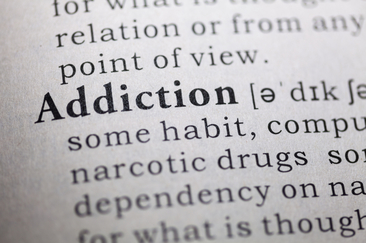Alcohol Addiction Serious Problem in Jacksonville Florida

Treatment Programs Available from an Addiction Treatment Center Various studies on treating drug addiction have classified rehabilitation programs into several types. In most cases, a rehabilitation program would start with detoxification and medically managed withdrawal. The process of detoxification is designed to manage the potentially dangerous effects of withdrawing from drug abuse. However, detoxification alone is not enough to deal with the problems which are often associated with addiction, hence it doesn't typically produce long lasting results.
What you should consider
Before you decide on which recovery option to get from an addiction treatment center, you should realize that everyone is different. Some individuals can make much faster progress throughout the rehab process, while some might take a little while. Perhaps they rely on a great support system which awaits them once they leave out of the rehabilitation center - in most cases they could potentially need far less counseling compared to those who don't have anyone to fall back on.
Florida
Treatment Center in Florida
Addiction Recovery in Florida
Jacksonville
Orlando
Miami
Tampa
In order to provide a far better approach to drug abuse recovery, rehab centers have come up with various programs that will better suit with each individual. Here are some of them:
Long-term residential rehabilitation
This type of recovery provides care 24 hours a day in non-hospital settings. So far, the best-known treatment model for residential rehabilitation is therapeutic community (TC) which usually lasts for 6 to 12 months. It focuses mainly on the "reserialization" of the user and uses the program's community such as staff, other residents, and the social context. Research shows that TCs can be customized in order to meet specific needs of certain individuals like women, adolescents, homeless persons, and those with mental disabilities.
Outpatient rehabilitation
An outpatient program costs less than a residential or inpatient program. Other than that, it is also ideal for those who have jobs. However, keep in mind that low-intensity programs tend to offer little more than drug education. There are other outpatient models, however, which could be compared to residential programs when it comes to effectiveness and services depending on the needs of the patient. In most outpatient programs, group counseling is often a major component. Some programs are also designed for treating patients who suffer from other medical or mental problems in addition to their drug addiction.
Short-term residential rehabilitation
Unlike the long-term therapy, short-term residential programs offer intensive rehabilitation but only for a brief period. They were originally intended for treating alcohol problems, but the cocaine outbreak in mid-1980s prompted lots of people to treat other types of substance abuse. At first, the recovery model involves a 3- to 6-week inpatient treatment phase within hospital setting followed by an extended outpatient therapy. After that, patients are placed within a residential treatment program. It is necessary that patients remain engaged in an outpatient and/or aftercare program. Such types of programs make it possible to reduce the possible risks of relapse in the event that a patient leaves the residential setting.
Group counseling
Research studies shown that when a group therapy is offered along with an individualized drug counseling, it is likely possible to achieve a positive result. As of now, researchers have been testing various conditions where it is possible to standardize group therapy and make it more community-friendly.
Individualized counseling
Individualized counseling involves a lot of aspects. Rather than just emphasizing on reducing or even stopping use of drugs or alcohol, it also involves various areas such as family/social relations, employment status, and other related areas of impaired functioning. By focusing on short-term behavioral goals, it allows the patient to come up with coping strategies and tools that will compel them to abstain from using drugs. The counselor involve will encourage a 12-step participation for at least once or twice a week and make referrals for certain necessary areas such as employment, psychiatric, and other services.
Therapy for criminal justice-involved abusers
In lots of cases, individuals who abuse drugs come into contact with the justice system earlier than health systems. This presents opportunities for a rehab before, during, or after incarceration. Research has shown that by combining drug abuse treatment with criminal justice sanction, it is possible to reduce drug abuse and related crime effectively. Those who are subjected to legal coercion have a tendency to stay longer in a treatment and do better compared to those who are not under legal pressure.
Studies have shown that incarcerated individuals with drug problems who undergo abuse rehabilitation inside jail and proceed with the same rehabilitation after being released out of prison resulted in far better outcomes, meaning less criminal behavior and even drug use.
Jacksonville, Florida
Orlando, Florida
Tampa, Florida
Miami, Florida
Tallahassee, Florida
Saint Petersburg, Florida
Hialeah, Florida